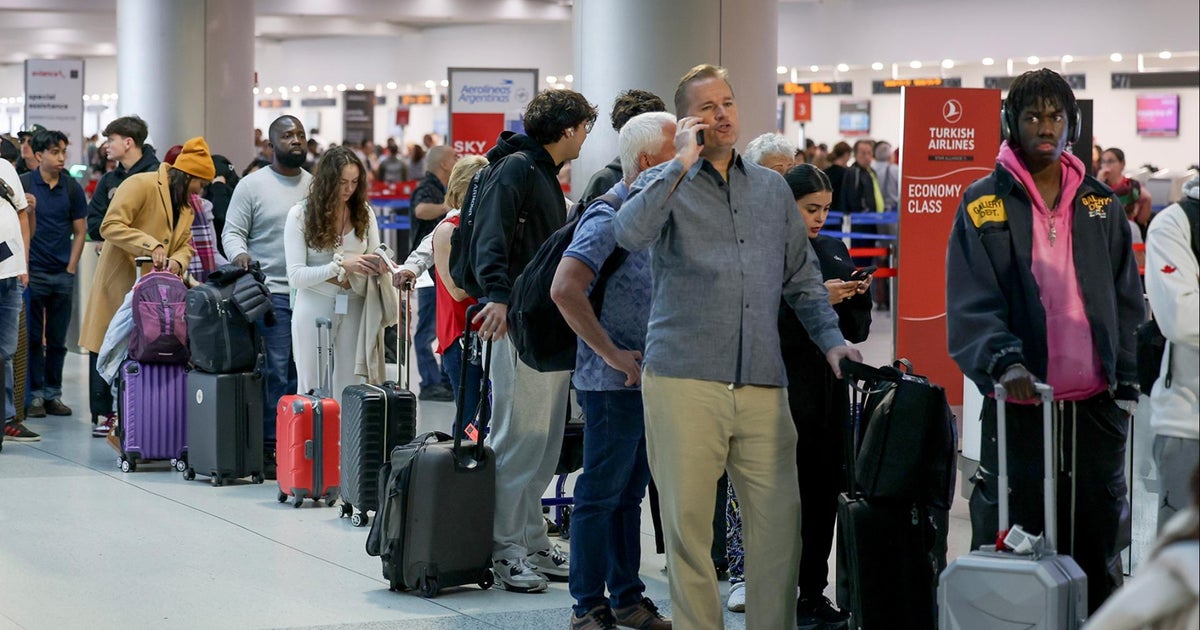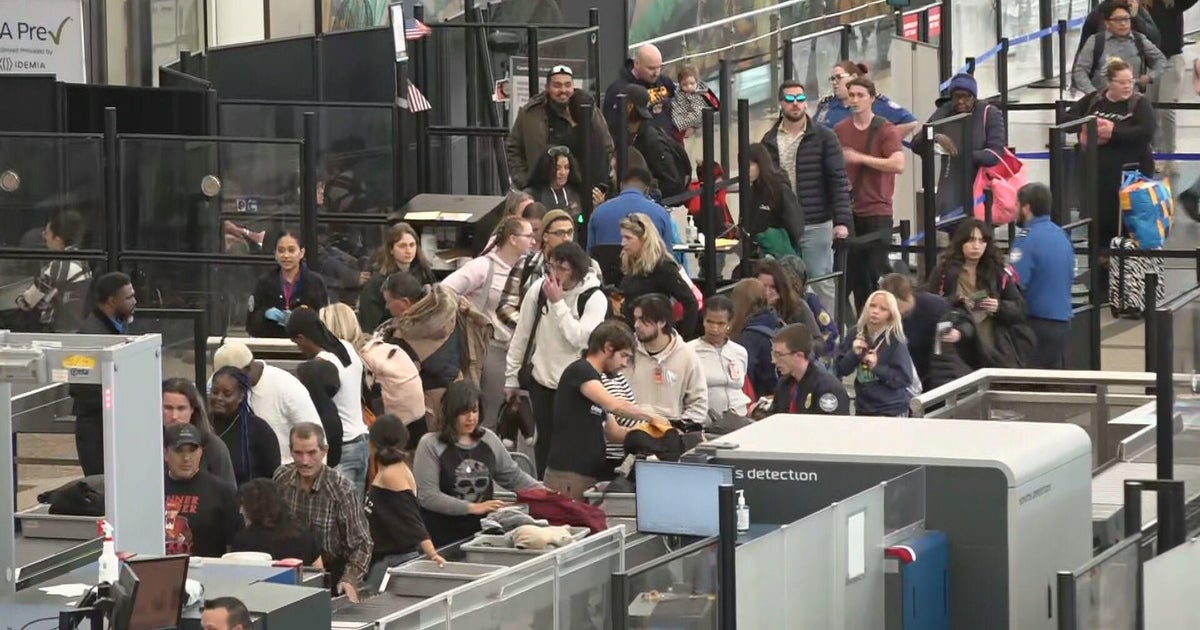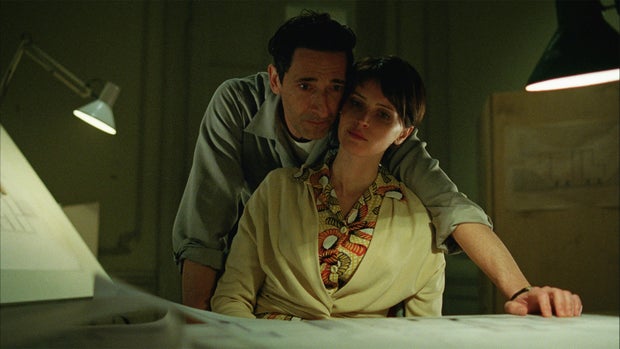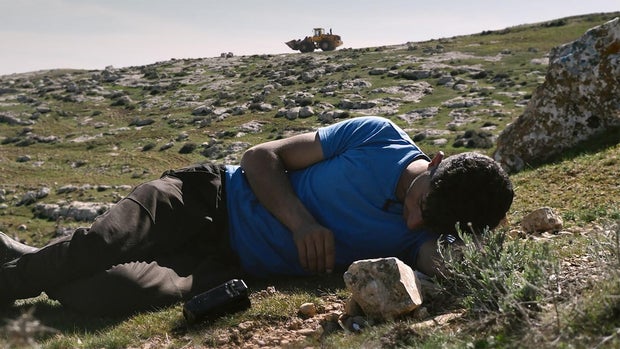CBS News
2024 New York Film Festival opens with star-filled lineup

The 62nd New York Film Festival opened at Lincoln Center on Friday, the return of what may be the best curated international film festival, featuring new works by such esteemed directors as Pedro Almodóvar, Mike Leigh, David Cronenberg, Paul Schrader, Steve McQueen, and Luca Guadagnino.
The festival, which runs through Oct. 14 at venues across New York City, showcases more than 100 films from 41 countries, including prize winners from the Cannes, Venice, Berlin, Sundance, Toronto and Locarno film festivals. Among the stars featured are Adrien Brody and Felicity Jones (“The Brutalist”), Daniel Craig (“Queer”), Richard Gere and Uma Thurman (“Oh, Canada”), Tilda Swinton and Julianne Moore (“The Room Next Door”), Saoirse Ronan (“Blitz”), Cate Blanchett (“Rumours”), and Naomi Watts and Bill Murray (“The Friend”).
Angelina Jolie stars as opera diva Maria Callas in the biopic “Maria,” directed by Pablo Larrain (“Jackie,” “Spencer”). “Emilia Perez,” a crime thriller/musical, won the best actress award at Cannes for its four lead performers: Zoe Saldaña, Selena Gomez, Karla Sofía Gascón and Adriana Paz. “A Traveller’s Needs” stars the great Isabelle Huppert as a French teacher in South Korea whose unconventional teaching methods involve speaking hardly any French words.
Gala screenings
Friday’s opening night presentation, “Nickel Boys,” is an adaptation of Colson Whitehead’s Pulitzer Prize-winning novel about a young Black student unjustly sent to a reform school in Florida, where he witnesses the cruel hypocrisies of the Jim Crow era. Directed by RaMell Ross (the Oscar-nominated documentary “Hale County This Morning, This Evening”), the film takes a subjective view of the characters’ journey into adulthood. It stars Ethan Herisse, Brandon Wilson, and Deveed Diggs.
To watch a trailer for “Nickel Boys” click on the video player below:
Other gala screenings include the festival’s centerpiece, “The Room Next Door.” Pedro Almodóvar’s first English-language feature, which won best film at the Venice Film Festival, stars Tilda Swinton and Julienne Moore as two old friends who reconnect over one’s desire to end her own life.
The festival’s closing night screening is Steve McQueen’s “Blitz,” starring Saoirse Ronan as a single mother separated from her child during the Germans’ bombing of London in World War II.
Other notable entries in the festival lineup include “Queer,” based on William S. Burroughs’ book and directed by Luca Guadagnino (“Call Me By Your Name”). It stars Daniel Craig as a gay American expatriate in 1940s Mexico City who begins a love affair with a preppy newcomer (Drew Starkey).
“All We Imagine As Light” (a grand prize-winner at Cannes) tells the story of the emotional bonds of a trio of nurses in Mumbai. Iranian emigree filmmaker Mohammad Rasoulof’s “The Seed of the Sacred Fig” explores the political divisions within the family of an Iranian judge. “Transamazonia” is centered on a woman who survived a plane crash in the Amazon jungle as a child and grows into a faith healer.
Jesse Eisenberg’s “A Real Pain” (which won a screenwriting award at Sundance) stars Eisenberg and Kieran Culkin as cousins reconnecting during a trip to the Polish hometown of their grandmother, a Holocaust survivor. In “The Friend,” Naomi Watts gains an unexpected inheritance from her deceased neighbor Bill Murray: a giant Great Dane.
Mike Leigh’s “Hard Truths” stars Marianne Jean-Baptiste (an Oscar nominee for “Secrets & Lies”) as a working-class woman struggling with physical and mental health problems. Guy Maddin, whose past films have been phantasmagorical flights of fantasy, returns to the festival with “Rumours,” in which world leaders at the G-7 Summit face an unusual brand of apocalypse.
Also playing: “The Damned,” a Civil War drama of Union soldiers in the Northwest frontier; “Jimmy,” which reimagines the life of writer-activist James Baldwin when he moves from the United States to Paris in 1948; from Japan, the dystopian drama “Happyend,” which examines the surveillance of citizens in a Tokyo high school; and Miguel Gomes, behind the 2015 triptych “Arabian Nights,” directs “Grand Tour,” an immersive, time-shifting trip across Southeast Asia.
Documentaries
Among the non-fiction films on tap are “Dahomey,” which traces the repatriation to Africa of cultural treasures that had been plundered by French colonial troops; “Suburban Fury,” which looks at the radicalization of Sara Jane Moore, a 45-year-old California woman and former FBI informant who attempted to assassinate President Gerald Ford; and the U.S. premiere of “Elton John: Never Too Late,” which explores the life and career of the pop-rock icon.
In “My Undesirable Friends,” Soviet Union-born filmmaker Julia Loktev returned to Moscow to make a documentary on independent journalism under Putin, just in time for the launch of Putin’s invasion of Ukraine. Brett Story and Stephen Maing’s “Union” documents the formation of the Amazon Labor Union, following an historic vote at the company’s Staten Island warehouse.
Revivals and restorations
The festival will screen 4K restorations of the Clive Barker horror film “Hellraiser,” featuring Pinhead; Robert Bresson’s “Four Nights of a Dreamer”; Marguerite Duras’ film debut, the 1966 “La Musica”; John Hanson and Rob Nilsson’s 1978 indie film “Northern Lights,” about the rise of a populist movement in North Dakota in the early 20th century; and Frederick Wiseman’s 1981 documentary “Model,” which, at two hours, is short compared to Wiseman’s recent films.
Also being screened, from 1977, is Marva Nabili’s “The Sealed Soil,” the earliest surviving film directed by an Iranian woman.
Free talks
The festival will host free discussions with filmmakers. Among those scheduled are “Nickel Boys” director RaMell Ross and Barry Jenkins (Sept. 29); Alex Ross Perry and Andrei Ujică, director of the documentary “TWST/Things We Said Today” (Oct. 3); Sigrid Nunez, author of the source novels “The Friend” and “The Room Next Door” (Oct. 5); director Zeinabu Irene Davis and Madeleine Hunt-Ehrlich, of “The Ballad of Suzanne Césaire” (Oct. 6); “Grand Tour” director Miguel Gomes and Payal Kapadia (Oct. 9); and Julia Loktev and Roberto Minervini (Oct. 9).
The festival runs through Oct. 16 at Lincoln Center, with additional screenings at the Alamo Drafthouse Cinema on Staten Island, the Brooklyn Academy of Music, the Bronx Museum, and the Museum of the Moving Image in Queens.
Early highlights
Of festival entries screened at press time, a few highlights are reviewed below. [More reviews will be published as the festival continues.]
A24
“The Brutalist” (U.S. premiere)
Director and co-writer Brady Corbet’s taut post-war drama of a Hungarian architect trying to reinvent himself in America is a tale of refugees adrift in a so-called land of opportunity, where antisemitism lurks behind every welcome. Adrien Brody (“The Pianist”) plays László Tóth, whose arrival in Pennsylvania, and a chance commission through his assimilated cousin’s furniture business, sets him on a new path, one that plays like a dark, psychological character study from the 1970s. Tóth’s modern, brutalist style (which meets with much criticism), and his dogmatic beliefs in his own independence, both inflate and undermine his abilities to see the gargantuan project through to completion.
The 3.5-hour film (with intermission) is epic in its emotional weight, as Tóth sacrifices his family and personal ties in the service of his static, monumental vision. Matching Brody in the strength of performance is Felicity Jones (“The Theory of Everything”), excellent as Tóth’s wife, Erzsébet, whose physical infirmity only reinforces her steely temperament; and Guy Pearce (“Memento,” “The Hurt Locker”), magnetic as Harrison Lee Van Buren, a wealthy businessman and patron who views a Tóth commission as a worthy monument to his ideals and, ultimately, his corruption. It’s a film of big ideas and oversized egos, and of a society ready to crush both.
Shot in VistaVision, the picture screens Oct. 12 in 70mm, and Sept. 28 and Oct. 11 in 35mm. 215 mins., including 15-minute intermission. In English, Hungarian, Hebrew, Yiddish and Italian and English subtitles. An A24 release. Opens in theaters Dec. 20.
Neon
At first, Sean Baker’s sly and at times uproarious comic-drama of a Brooklyn sex worker who enters into a Cinderella romance and marriage with the flighty son of Russian oligarchs seems a slight choice for top prize at this year’s Cannes Film Festival. (Recent Palme d’Or winners have included the comparatively heavy “Anatomy of a Fall,” “Triangle of Sadness” and “Parasite.”) But Baker, whose previous films include “The Florida Project” and “Tangerine,” consistently upends our expectations. In part this is due to the performance of Mikey Madison, who plays Anora (preferred name Ani) as a woman older than her 25 years, but still young enough to believe in the sanctity of elopement. Baker also twists what we’d expect of movie Russian oligarchs; here, the brute Brighton Beach muscle they bring are little match against a street-smart girl who has a romantic core but isn’t averse to using hardball tactics. With Mark Eydelshteyn as Ani’s love, Ivan; Karren Karagulian as Ivan’s intemperate godfather; and Vache Tovmasyan as an Armenian enforcer who is not terribly effective at his job, aided by the standoffish and brooding Igor (Yura Borisov).
Screens Sept. 28, 29, Oct. 8. 138 mins. In English and Russian with English subtitles. A Neon release. Opens in theaters Oct. 18.
Rachel Szor
For years, Basel Adra, a videographer and son of Palestinian activists, has documented the ongoing efforts of Israeli military and settlers to drive Palestinian residents out of the West Bank villages of Masafer Yatta. His camera records bulldozers brought in to knock down houses and schools, forcing those who refuse to leave to erect homes in caves. Meanwhile, visiting journalist Yuval Abraham writes articles on the displacement at Masafer Yatta that, he hopes, people will actually read. But witnessing the destruction prompts depression, and a reassessment of the patience needed to overcome systemic injustice, and the limits of journalism. “No Other Land” was shot before Hamas’ Oct. 7 terrorist attack on Israel, so it plays like a prelude to further horror. But just before a recent screening, Basel posted on social media that his father had been kidnapped and detained by the Israeli military. The distressing story never really ends. Directed by Adra, Abraham, Hamdan Ballal and Rachel Szor, the film won the Documentary Award at the Berlin Film Festival.
Screens Sept. 29, Oct. 1, 5, 6. 95 mins. Arabic, English, and Hebrew with English subtitles. No distributor or release date has been announced.
Directed by Petra Costa (“The Edge of Democracy,” “Elena”), this engrossing documentary traces the growing influence of the Dominionist evangelical movement in Brazil, which in recent years has grown to 30% of the population — a voting block that has proved impossible for Brazilian politicians to ignore. Front-and-center of the film is televangelist Silas Malafaia, a charismatic pastor (with a thriving publishing business on the side) who has the ear of Jair Bolsonaro, a hard-right politician riding his faithful fans to the presidency. But the Brazilian government’s failures during the COVID pandemic — characterized by Bolsonaro dismissing his country’s high mortality rate by saying, “We will all die one day” — weakens the evangelicals’ hold on the nation’s top office. Costa dissects how the theology of apocalypse aimed at bringing forth the end times suits the agenda of some — hence the disturbingly familiar scenes of insurrection as rioters overtake Brazil’s Congress and Supreme Court after Bolsanaro loses his 2022 reelection bid.
Screens Sept. 29, 30. 110 mins. In Portuguese with English subtitles. Distributor and release date to be announced.
Watch a trailer for the 62nd New York Film Festival:
CBS News
Holiday travel rush underway across U.S.

Watch CBS News
Be the first to know
Get browser notifications for breaking news, live events, and exclusive reporting.
CBS News
Oil and gas companies sued over alleged false claims of plastic recyclability

Watch CBS News
Be the first to know
Get browser notifications for breaking news, live events, and exclusive reporting.
CBS News
Record number of Americans expected to travel over holidays

Watch CBS News
Be the first to know
Get browser notifications for breaking news, live events, and exclusive reporting.











